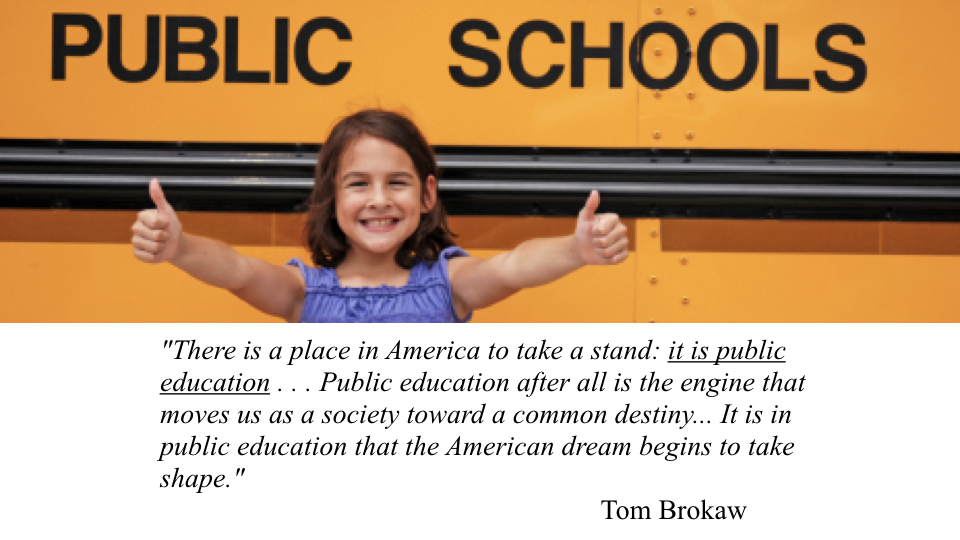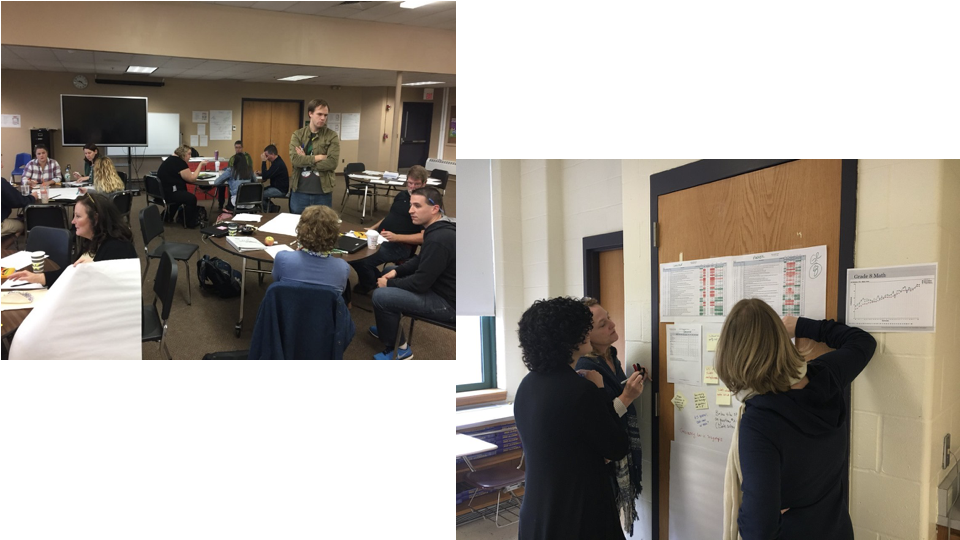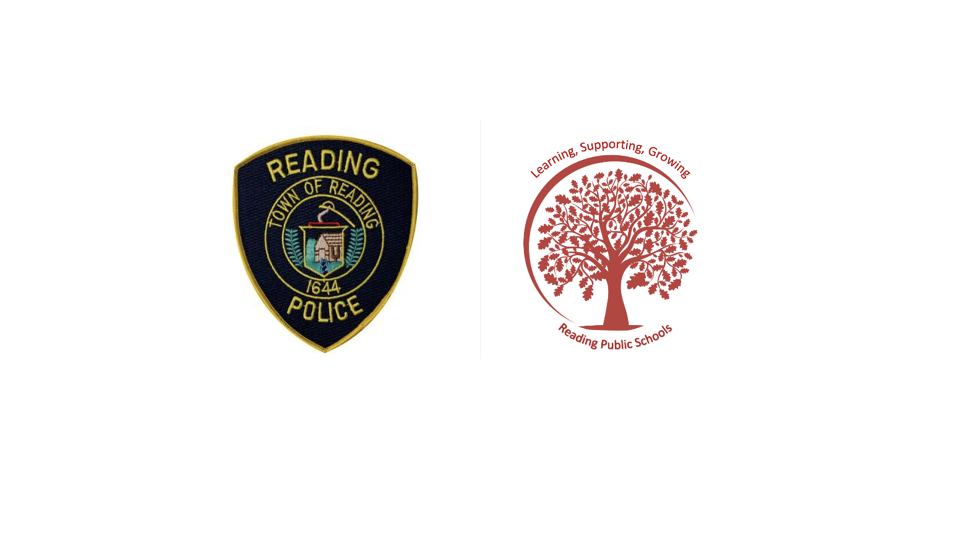The following is the State of the School Address presented at Town Meeting by John F. Doherty, Ed.D. Superintendent Reading Public Schools

Reading, MA — Mr. Moderator, Town Meeting Members, Board of Selectmen, Finance Committee Members, School Committee, Fellow Town Leaders and Department Heads, School Building Principals, District Administrators, Members of the School Community, and Invited Guests. It is my great privilege tonight to represent the hundreds of dedicated educators of the Reading Public Schools, and to deliver to you the annual State of the Schools address.  Without a doubt, the issue that every one of our educators would probably want to communicate to you tonight is that we are in a time of tremendous change in education. In this, the 21st century, change has been swift, in so many different areas of life. With technology advances, social media, changing industries, and so much more . . . we all realize of course that the future our kids are preparing for is in many ways very different from when we were their age. To use a football analogy, over the last several years alone, the goal posts have been moved several times. Just in the past five years there have been three new sets of state frameworks in science, mathematics, and literacy and we have had three different state assessments, a more rigorous SAT and AP exams at the high school level, the increased role that technology plays in education, and an increased (and understandable) emphasis on the overall health and well-being of our students—especially given the opioid and substance-addiction epidemic facing our society. While all of these changes are definitely in the best interest of our students, there is no question they have put stress and strain on our administrative team and on our staff. As a district that is comparatively very lean in administrative leadership—one without curriculum directors or coordinators, major changes are more challenging to navigate than for many other districts. In addition, all of this is happening during a time in Reading of tighter and tighter budgets, where each year the level service budget is being reduced from the previous year. On behalf of all our teachers and administrators, I say this only because I think it’s important to recognize the challenges our staff has collectively been facing—and to express extreme gratitude for their ongoing efforts.
Without a doubt, the issue that every one of our educators would probably want to communicate to you tonight is that we are in a time of tremendous change in education. In this, the 21st century, change has been swift, in so many different areas of life. With technology advances, social media, changing industries, and so much more . . . we all realize of course that the future our kids are preparing for is in many ways very different from when we were their age. To use a football analogy, over the last several years alone, the goal posts have been moved several times. Just in the past five years there have been three new sets of state frameworks in science, mathematics, and literacy and we have had three different state assessments, a more rigorous SAT and AP exams at the high school level, the increased role that technology plays in education, and an increased (and understandable) emphasis on the overall health and well-being of our students—especially given the opioid and substance-addiction epidemic facing our society. While all of these changes are definitely in the best interest of our students, there is no question they have put stress and strain on our administrative team and on our staff. As a district that is comparatively very lean in administrative leadership—one without curriculum directors or coordinators, major changes are more challenging to navigate than for many other districts. In addition, all of this is happening during a time in Reading of tighter and tighter budgets, where each year the level service budget is being reduced from the previous year. On behalf of all our teachers and administrators, I say this only because I think it’s important to recognize the challenges our staff has collectively been facing—and to express extreme gratitude for their ongoing efforts.

Retired journalist and famous broadcaster Tom Brokaw is quoted as saying, “There is a place in America to take a stand: it is public education . . . Public education after all is the engine that moves us as a society toward a common destiny… It is in public education that the American dream begins to take shape.”

I know it is with this type of passion that the teachers of Reading have been setting new goals for our district and have been working tirelessly to align to the more rigorous standards from the Department of Education. There are areas that our staff has identified as requiring significant improvement, and we are certainly facing both fiscal and organizational challenges. In spite of these challenges, however, our staff has also been making some significant progress in revitalizing our district, and I know they are grateful for your continued support toward these efforts. Through this journey over the last few years, I have certainly learned a great deal as well – some of it the hard way – but as educators, we are also great learners. As our students know, mistakes, adversity, challenges—can make us stronger and better (as long as we learn from the experience). And our administrators, teachers, and staff are now profoundly moving this district in a direction that the entire community can and should be proud of—and one that will greatly benefit our children—who are the future of this community.
To that end, this evening, I want to give you three quick examples of where we are making significant progress in our school district—and how the educators of this community are making sure that the Reading Public Schools is poised for the future.

First and foremost, is our schools’ efforts in community building, which quite simply is creating the foundation for everything else we do. The 21st century may have brought us all tremendous changes, but the foundational values of our community have remained unchanged—and in fact, are actually being strengthened, all during a time when our society seems to need it most. It is truly inspirational to see our educators and students demonstrate such team-building, and the entire community can be very proud of the leadership role our schools are playing and are modeling for our children. For instance, at a time when communities all over the country are seeing an up-tick in hate crimes or in hate-related graffiti, the staff and students of Reading have responded strongly and proactively by bringing people together, forming new partnerships, and strengthening our community values of respect and acceptance for all. Our plan focuses on response, communication, teamwork and education.

We are especially proud of the strong collaboration between the Reading Public Schools and the Reading Police Department. This relationship, which is not the norm in other communities, has only grown stronger and is built on communication, trust, and a sense of purpose to keep our students and staff safe. We have been very fortunate in this community to have strong leadership with Chief Segalla, his predecessor Chief Cormier and exceptional School Resource Officers who understand their role in a school setting.

In addition, we have developed a strong relationship with the Anti-Defamation League, who is providing our teachers and administrators with on-going support and training. They have been providing student training at our two middle schools and the high school for our A World of Difference Clubs. These clubs will lead the student response in creating a culture that promotes respect and embraces diversity. Last year, the student club here at the High School created an RMHS Human Rights Resolution which was embraced by both staff and students.

Along the same lines, we have formed community partnerships with Reading Embraces Diversity, the Reading Clergy Association, and the Human Relations Advisory Committee who are using their roles to involve our community and help educate them that this is a community problem which requires a community solution. To that end, in late June, Deputy Police Chief Clarke and I met with over forty members of the Jewish Community to listen to their concerns and to better understand from them what these incidents symbolized. The conversation we had that evening was impactful and really resonated with me on the role our schools can play in our community. In short, through these challenges, we are bringing people together to forge new bonds and to model the values we hold dear for all our children.
All of our schools have responded also with assemblies, activities, and curriculum that focus on the core values of respect for each other—including for instance, the new Facing History and Ourselves program at the middle schools, which is designed to fosters empathy and reflection, improves student’s academic performance, and helps build safe and inclusive schools for ALL students.

This leads to our second example, which is the district’s commitment to closing the achievement gap among students and providing better supports, especially to our high needs students.

Last year, our entire team of principals and administrators collectively determined that this must be an explicit goal in our district improvement plan and that our efforts over the next several years must be unwavering. In essence, in spite of the inherent challenges we are currently facing, our schools have renewed a commitment to providing an excellent education to ALL students, including and especially for our students with disabilities. And our staff are now taking bold steps in this direction. Three years ago, through the visionary and proactive leadership of Director of Student Services Carolyn Wilson, we had Walker Associates do a thorough review of all of our special education programs and services. Through the recommendations of that report, we have been methodically and strategically with available resources, improving special education in our district. In the last couple of years, our special education staff have been working hard to develop a consistency of common practices from school to school and from level to level. Our teachers and administrators have been engaged in a significant amount of training in specialized reading, and both Special Education and General Education have been collaborating together to provide important professional development for staff. All of this has led not only to a more effective identification of students eligible for special education and appropriate services, but also to a more comprehensive understanding of effective instructional practices and to the identification of areas in which we needed to take steps to improve. Although we recently came to resolution with the Office of Civil Rights regarding issues from the 2014 and 2015 school years, staff members felt their efforts were validated, as many of the issues had already been proactively addressed prior to receiving the notice from OCR. I believe it is a good indicator that we have staff who are striving to address issues, and view complaints or feedback as an opportunity to better serve all kids. It’s a credit to our staff, and I can’t thank them enough for that attitude, as they are truly being excellent role models for our children. We have also recently begun taking initial steps for doing a complete review of our language-based special education program and specialized reading services and developing an action plan focused on improving the program and services for students with dyslexia and other language-based disabilities. Having strong in-district special education not only benefits our students as they are given the opportunity to be educated with their peers in the Reading Public Schools, but also it is a more cost-effective way to educate those students which allows us to invest more of our educational funding to the general classrooms.

Over the last couple of years, to support this work—and also part of the General and Special Ed collaboration, we have also made tremendous progress in our implementation of a multi-tiered system of supports for students—and Reading is now seen as a leader in this area throughout the New England region. All schools now have building leadership teams in place to monitor and review student progress, and blocks of time (called intervention blocks) have now been established during the school day to provide better support and targeted assistance to all students who may need it. I know that staff will still be making improvements as we move forward and learn from experiences—but the foundation has now been firmly built for future gains. These types of tiered supports given in a timely manner, can help all students reach new levels of success.

My final example focuses simply on the quality of our staff and the work that they have been doing currently in teaching and learning. First, our community can be very proud of the strength of the team we have been assembling across all levels. Our expectations are high, and the new members of our team are making tremendous contributions. In fact, they are being hired specifically for their strengths that will complement and further the objectives we have set. Lisa Marie Ippolito, the new Principal of the Joshua Eaton Elementary School and newest member to our team is a great example. She comes to Reading with a very strong knowledge base in literacy, mathematics, special education, and data analysis. And her leadership style, strong interpersonal skills, and knowledge of curriculum and instruction has been an excellent match for the Joshua Eaton Elementary School Community.

My goal is always to have the highest expectations for myself, our educators, and our students…and I am proud to say that the staff of the Reading Public Schools is made up of some of the most dedicated and talented educators in the country, who are doing tremendous work to better prepare our children for their future. We have been focusing our district improvement plan the last two years on updating, aligning, and improving our teaching and learning in our classrooms. Our schools are collaborating now and building upon each other’s strengths in new ways—both administrators and teachers. We have created new opportunities for teachers to work together at each grade level or content area, and we are building new capacities among all our staff to analyze our students’ behavioral and achievement data so that we can identify trends and direct interventions effectively. As an example, our outstanding Data Coach, Courtney Fogarty, explained to the School Committee at a recent meeting how staff are now engaging in the process of “collaborative inquiry,” and I have received feedback from both principals and teachers how transformative this coaching has been—and how they believe their students will benefit from this ongoing work. When a staff member takes time to call or email the Superintendent or Assistant Superintendent to commend such steps and to express their gratitude for the support this work is yielding, we know that our kids will benefit and that we are heading in the right direction.

These changes positively impact all students and if you have a child or grandchild in our school district, you may have also noticed that we have been implementing new curriculum materials over the last few years to support our staff and to align with recent changes in science, mathematics, and literacy. In addition to our strong emphasis on literacy in the elementary grades, through your Town Meeting support, we have been able to begin implementation of new science curriculum resources in grades K-12 that will provide us the tools to more effectively teach to the new science and engineering standards that were recently approved by the Department of Elementary and Secondary Education.

These new standards focus more on problem solving, application, and the use of critical thinking skills…all skills that are necessary for our students to be prepared for college and career. Last year, we began introducing new curriculum materials, and technology in grades 3-6. This year, we are fully implementing new science curriculum and technology in grades 7-9 and it is our goal in year 3 to complete implementation in grades K-2 and 10-12.

To better align to the state’s revised standards, staff have also been establishing new K-8 curriculum documents for both Literacy and Mathematics, have been engaging in professional development to support the necessary instructional shifts, and are streamlining and revising report card standards to focus even more sharply on the expectations outlined in the state Framework and assessed by the state’s new, next-generation MCAS—which was just piloted this last year. Our effort and collaboration is focused firmly on the core issues and evidence of student learning. Student outcomes are being more clearly defined; and student progress is being monitored more effectively. By building new structures and capacities of systemic support, all staff share in the accountability for student learning—and they work together to achieve results.
While we still are not satisfied and have a way to go, our educators are amazing—and I know it is their hope that the community continues to support them in this important work.

Our teachers are making an impact each and every day for our students through their hard work, dedication, and their willingness to try out new ideas, make mistakes, learn from those mistakes, and become even better educators as a result. And I am so proud of the fact that these educators have chosen the Reading Public Schools And we are all so fortunate that they have chosen to make a difference in the lives of our children.

To close tonight, as I do each year, I would like to take a moment to recognize a couple of these students. As for results of the work our educators are doing each and every day, there are no better examples than the two Reading Memorial High School Seniors who are the recipients of the Massachusetts Association of School Superintendents Award for Academic and Community Excellence. It is always difficult to select only two students, given how many deserving candidates we have here at Reading Memorial High School. Both students being recognized this evening have demonstrated strong academic skills, participate in extracurricular and community service activities, and are currently in the top 5% of their graduating class. In addition, I have had the opportunity to meet with both students and they are genuinely great kids. It is with honor and pride that I present this award to our first recipient who was a student at the Joshua Eaton Elementary School and Parker Middle School and is a member of the Model United Nations Club. She volunteers at the Reading Public Library where she serves as a Net Guide and helps senior citizens use the library technology. A member of the RMHS Symphonic band, this student has excelled in rigorous classes including AP BC Calculus, Physics, AP Biology, AP French, and AP Literature. In addition, this student is in the wind ensemble at the New England Conservatory of Music. This recipient envisions a career in biochemistry and has applied to Northeastern, UMass Amherst, Brown, Harvard, Tufts, Boston College, and Amherst College. She dreams about a career where she can have an impact on the lives of others. When asked which teachers had the greatest impact on her educational journey, she said RMHS English Teacher Andrea Mooney and RMHS Chemistry teacher Frank Buono.

It is with great pleasure tonight that I recognize Erin Kwon. Erin, please come forward to receive the 2017 Massachusetts Association of School Superintendent’s Award.
Tonight’s second recipient also attended Joshua Eaton Elementary School and Parker Middle School and has excelled as a four year member of the RMHS Robotics Team where he has served as a programmer and, now, the business sector president. Academically, this student is a curious and engaged learner who is currently taking several high level courses including AP BC Calculus, AP Statistics, AP Physics, AP French, Philosophy of Literature, and Principles of Engineering. He is very involved in community service activities, teaching swimming to students at the YMCA who have developmental disabilities and mentoring students in computer coding at the Reading Public Library.
Next year, he plans on majoring in Computer Science and is applying to MIT, Carnegie Melon, Harvard, Northeastern, UMass Amherst, and RPI.
The teacher who has had a significant impact on this student’s journey is Chemistry Teacher Frank Buono who turned a difficult class with a dense amount of information into a class he could freely enjoy.
It’s a great honor to introduce to you, Mathias Kool! Mathias, please come forward and accept the MASS 2017 Superintendent’s Award for Academic Excellence.
Congratulation, Erin and Mathias!

This evening, I have focused on three themes on how the Reading Public Schools is poised and prepared for the future. All of this is connected to the value that strong public schools can have in a community. About 20 years ago, the Association for Supervision and Curriculum Development (or ASCD, as it is called) a leading educational, nonprofit organization, published a memorable publication on the connection of public education and democratic society. In a Town Meeting such as this, a strong symbol of democracy itself, there is perhaps no better place to echo their sentiments. In that publication, ASCD spoke of the origin of public schools in the 1800s as “the necessary expression of democratic society.” They wrote . . . “Democratic life requires critical inquiry, collective decision making, civic participation, and a commitment to the common good” . . . and therefore “educational excellence for all children, through collectively supported schooling, must be a goal.” And they emphasize “Children are our living link to the future.”

It is widely known that communities that have strong public schools strengthen a community, build family values, contribute to lower crime rates, and enhance property values. In addition, public schools give the promise of equal educational opportunity for all students by creating a safe and supportive school culture, committing to high standards and high expectations, and teaching democratic principles and values. I take pride in the fact that we have made that type of contribution to our community.

We have faced many challenges together and one of our biggest challenges is looming on the horizon…the fiscal constraints that are facing our community. However, each and every time our community has faced a challenge, we have worked together as a team, persevered, and eventually succeeded. That is why the educators of Reading are proud to serve this community as dedicated stewards of its future—and of the future of our democracy.

They would want you to know their goal is to make you all proud—and to thank you for the privilege. . . as together, we continue to make Reading a place where all students are supported, a place where we develop the leaders of tomorrow, and a place where our schools continue to provide the strong foundation for the future of this great community.

State of the Town video from RCTV Studios
https://www.facebook.com/RCTVStudios/videos/10155032635928779/
